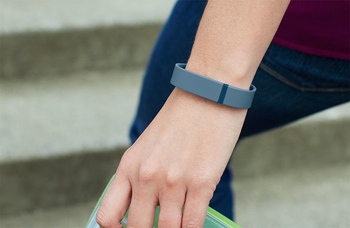 We love activity trackers here at Techlicious like the Fitbit Flex – they're a great way to measure the steps you've taken, calculate the calories you've burned and encourage you to stay on track to your goals. But that’s not the only benefits of the Fitbit: Forbes magazine is reporting that employers and insurance companies are looking towards such monitors as a new way to reduce health care costs.
We love activity trackers here at Techlicious like the Fitbit Flex – they're a great way to measure the steps you've taken, calculate the calories you've burned and encourage you to stay on track to your goals. But that’s not the only benefits of the Fitbit: Forbes magazine is reporting that employers and insurance companies are looking towards such monitors as a new way to reduce health care costs.
According to the report, a handful of large companies like oil giant BP America have given their employees and their families free access to Fitbit devices. As part of the deal, insurance companies get access to anonymized, bulk data about the employees. More active employees means healthier employees, which could eventually lead to reductions in the price that companies pay to provide their employees with health insurance.
Fitbit warns that it could take 3 to 5 years for its data to have a real impact on insurance prices. Health insurers aren't ready to commit to saying the relatively new fitness-tracking trend will definitely lower costs, but they do sound optimistic. Insurance company Cigna estimates that the right tracker “could lead to a 13% year over year reduction in medical trend, what insurers charge employers based on the risk profiles of their employees,” Forbes' Parmy Olson writes.
Large scale purchasing of policies is not the only place Fitbit could impact bottom lines, either. You could see a real difference in your own personal health care spending with an activity monitor.
A study conducted by the University of Texas Southwestern Medical Center and Cooper Institute looked at 40 years’ worth of medical records of over ten thousand patients to better understand their healthcare spending. Researchers found that women who were the most fit in middle age had 40% lower average annual claims than the least fit women in the study.
Activity monitors aren’t a magic bullet that will get you into the “most fit” category overnight, and your own personal medical savings could be impossible to quantify. The devices are motivating, however. And even small improvements in your family’s personal activity levels can lead to positive short- and long-term benefits.
To learn more about this year’s trends in activity tracking tech, check out our exercise monitor coverage on Techlicious.















